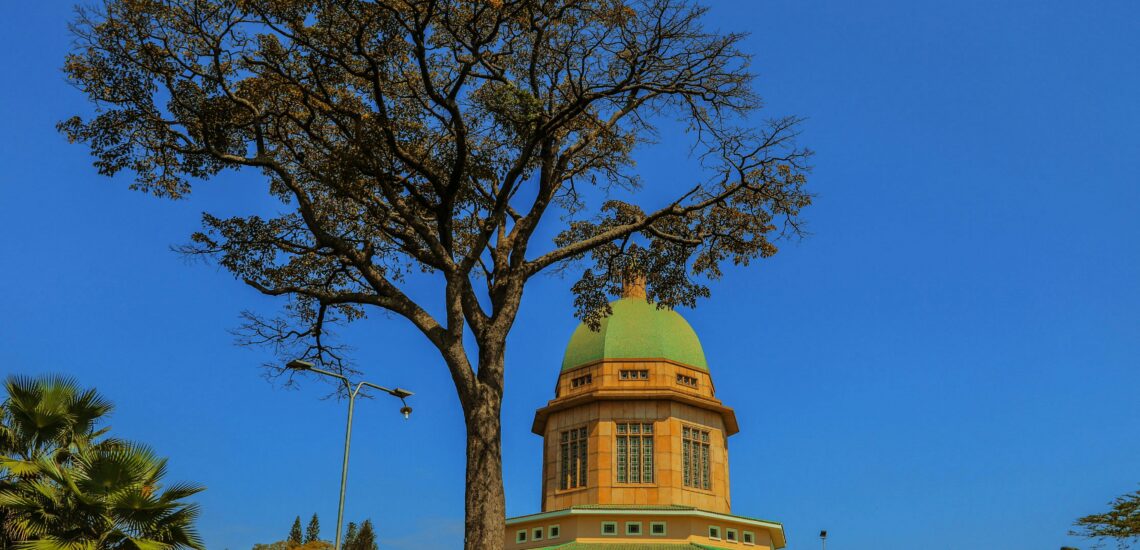Quick facts about Uganda:
- Population: Approximately 45 million people.
- Capital: Kampala.
- Official Languages: English and Swahili.
- Other Languages: Luganda is widely spoken, along with various Bantu and Nilotic languages.
- Currency: Ugandan Shilling (UGX).
- Government: Unitary presidential republic.
- Major Religion: Christianity (predominantly Roman Catholic and Protestant), with a significant Muslim minority.
- Geography: Landlocked country in East Africa, bordered by Kenya to the east, South Sudan to the north, the Democratic Republic of the Congo to the west, Rwanda to the southwest, and Tanzania to the south. Uganda is home to a significant portion of Lake Victoria, Africa’s largest lake.
Fact 1: Uganda is one of the most densely populated countries in the world
Uganda is one of the most densely populated countries in Africa, with a population density of about 229 people per square kilometer as of recent estimates. The country’s population is growing rapidly, with an annual growth rate of around 3.3%. Uganda’s total population is over 45 million, and the median age is just 16.7 years, making it one of the youngest populations in the world. This youthful demographic is expected to double the population by 2050, further intensifying the challenges related to land use, infrastructure, and resource management.
Despite the high density, about 75% of Uganda’s population still lives in rural areas, primarily dependent on agriculture. However, urbanization is accelerating, with Kampala, the capital, and other cities experiencing significant growth as people move in search of better opportunities. This rapid urban expansion puts pressure on housing, healthcare, and education systems, necessitating urgent planning and investment to manage the demographic changes effectively.

Fact 2: The main mode of transportation in Uganda is the bicycle
In Uganda, bicycles are crucial mode of transportation, especially in rural areas where they are often the most accessible and affordable means of getting around. Bicycles are commonly used for everything from commuting to transporting goods and produce. They are integral to daily life in many communities, where paved roads are few, and public transportation options are limited.
Uganda follows left-hand traffic rules, meaning that vehicles drive on the left side of the road. This left-handed traffic system is a legacy of British colonial rule, as Uganda was once part of the British Empire. The combination of bicycles and left-hand driving creates a unique traffic environment, particularly in bustling urban areas like Kampala, where the roads are shared by cars, motorcycles (known locally as boda-bodas), bicycles, and pedestrians. The mix of these different modes of transportation can lead to congested and chaotic traffic conditions, especially during peak hours.
Note: If you are planning to travel around the country on your own, check if you need an International Driving Permit in Uganda to drive.
Fact 3: Uganda has a large population of gorillas
Uganda is home to a significant population of mountain gorillas, one of the world’s most endangered species. The country is a key destination for gorilla trekking, with its Bwindi Impenetrable National Park and Mgahinga Gorilla National Park hosting nearly half of the world’s remaining mountain gorillas. These parks are part of the larger Virunga Conservation Area, which spans Uganda, Rwanda, and the Democratic Republic of the Congo.
Gorilla trekking is a major draw for tourism in Uganda, with visitors coming from around the world to see these majestic animals in their natural habitat. The experience is tightly regulated to ensure minimal impact on the gorillas and their environment, with only a limited number of permits issued each day. The revenue generated from tourism plays a crucial role in conservation efforts and in supporting the local communities living near the parks.
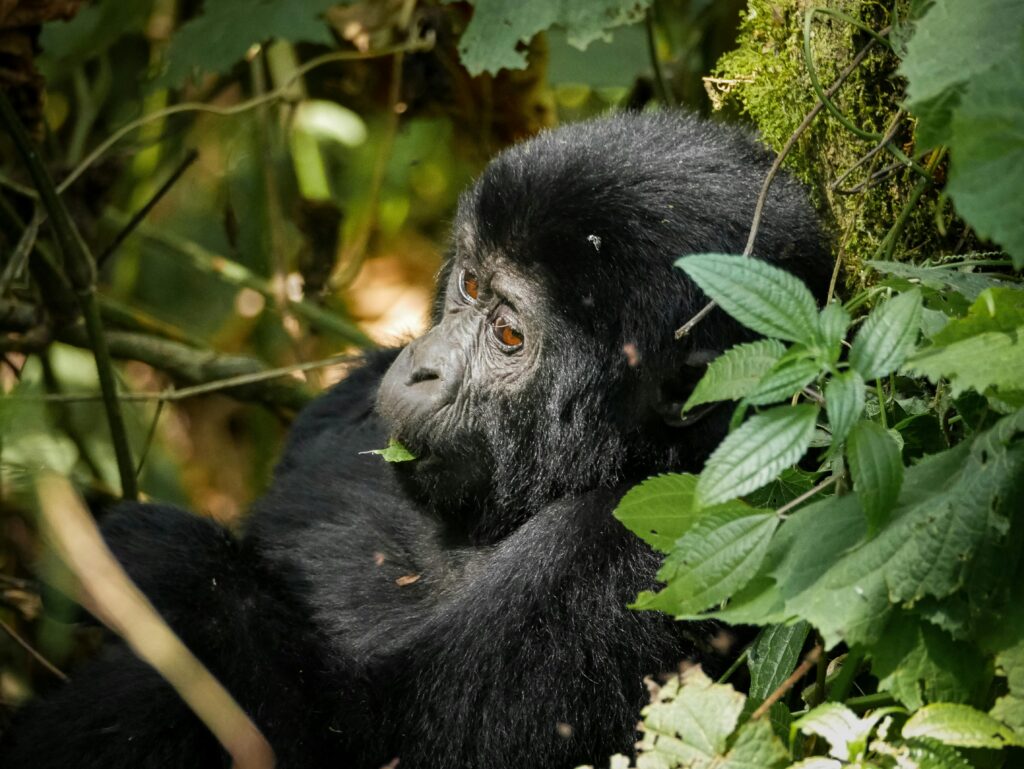
Fact 4: Uganda has great ethnic and linguistic diversity
Uganda is known for its remarkable ethnic and linguistic diversity, with over 40 distinct ethnic groups and as many languages spoken across the country.
The largest ethnic group in Uganda is the Baganda, who make up around 16% of the population and are primarily located in the central region. Luganda, their language, is widely spoken and serves as one of the most commonly used languages in the country, alongside English and Swahili, which are the official languages.
The linguistic landscape of Uganda is equally varied, with languages from several different families, including Bantu, Nilotic, and Central Sudanic.
Fact 5: Uganda without a sea but with a big lake
Despite being landlocked, Uganda is home to one of the largest lakes in the world— Lake Victoria. This vast body of water is shared with neighboring Kenya and Tanzania and is not only the largest lake in Africa but also the world’s largest tropical lake. Lake Victoria plays a crucial role in Uganda’s economy and culture, serving as a vital source of freshwater, fishing, and transportation. The lake’s shores are dotted with fishing communities, and its waters are teeming with diverse aquatic life, including the famous Nile perch. Lake Victoria also feeds into the Nile River, contributing to the river’s journey northward through Africa.
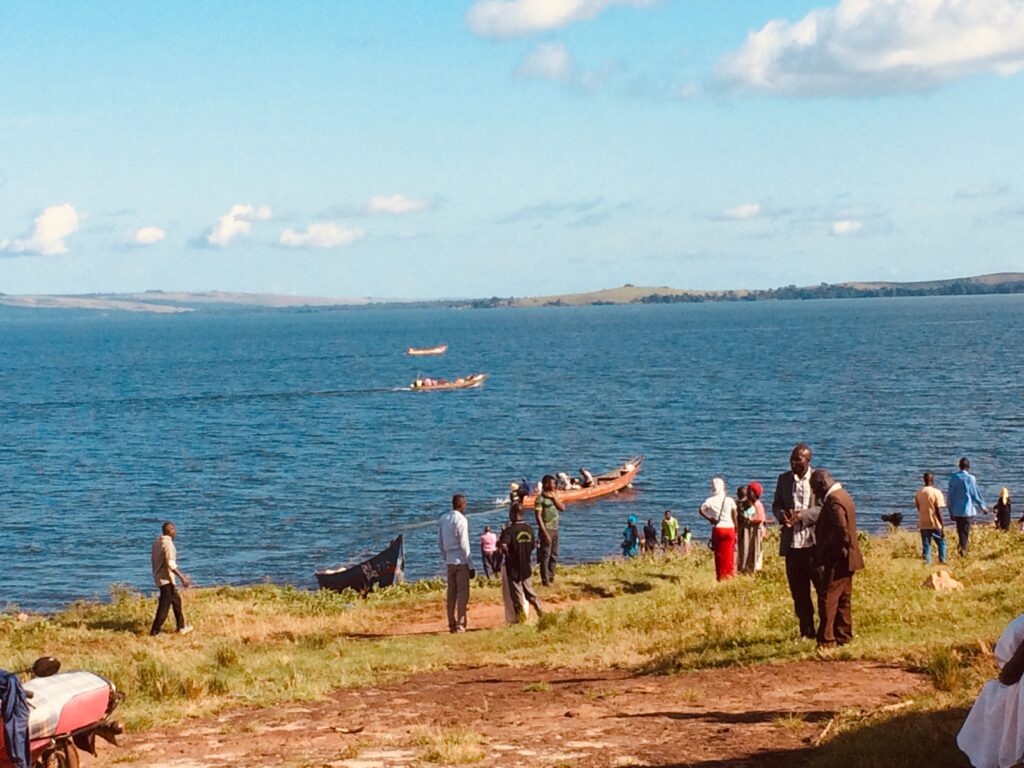
Fact 6: Uganda has biodiversity
Uganda’s biodiversity is remarkable, with over 1,200 butterfly species, making it a hotspot for lepidopterists. The country boasts more than 1,060 bird species, representing about 50% of all bird species in Africa, earning it the title of a birdwatcher’s paradise. Additionally, Uganda’s diverse habitats support large populations of elephants, lions, and chimpanzees, further highlighting its rich natural heritage.
Fact 7: Uganda has 3 UNESCO World Heritage sites
Uganda is home to three UNESCO World Heritage sites that reflect its rich cultural and natural heritage. Bwindi Impenetrable National Park, famous for its mountain gorillas, is recognized for its exceptional biodiversity. The Rwenzori Mountains National Park, often called the “Mountains of the Moon,” is another site known for its stunning landscapes and unique flora and fauna. Finally, the Kasubi Tombs, a site of great cultural significance, serve as the burial grounds for the Buganda kings, reflecting the deep historical and cultural roots of the Buganda Kingdom.
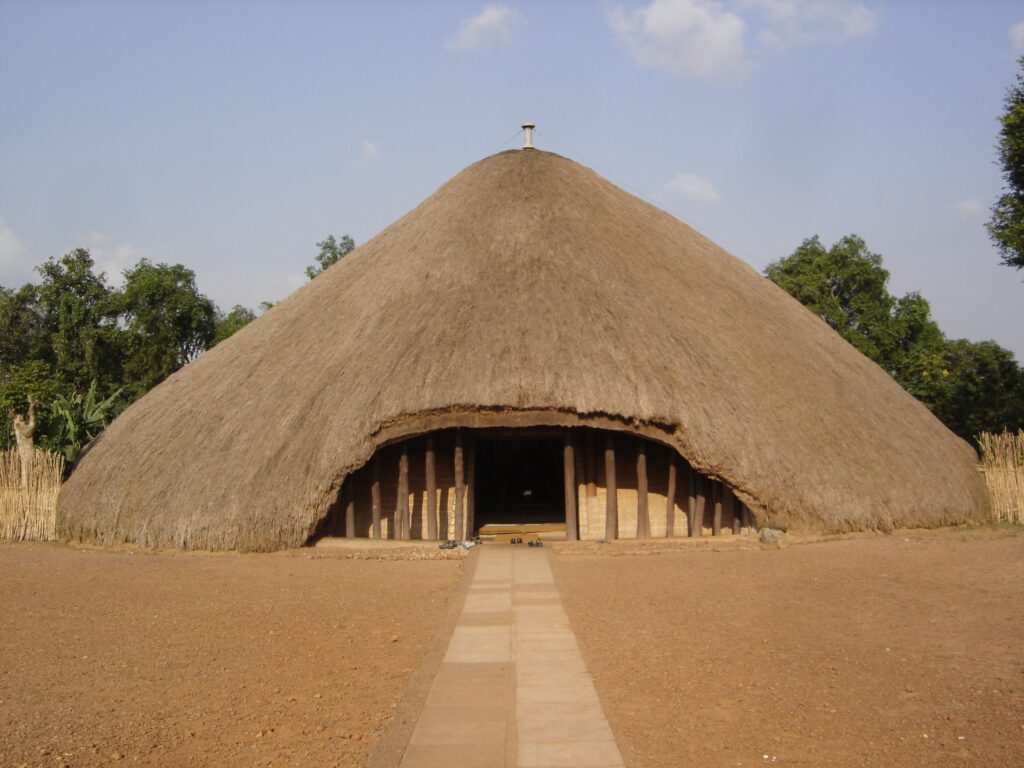
Fact 8: The equator line crosses Uganda
Uganda straddles the equator, which runs through the country’s southern region. This geographic feature makes Uganda a unique destination for travelers interested in experiencing the equatorial line. Visitors can participate in various water experiments that demonstrate the Coriolis effect, where water drains differently in the northern and southern hemispheres. These demonstrations are often set up at tourist sites such as the Equator Line Marker in Kayabwe, where travelers can see firsthand how water swirls differently depending on whether it’s on the equator or slightly north or south of it.
Fact 9: Ugandan cuisine is diverse
It reflects the rich cultural heritage of the country and incorporates a variety of dishes and ingredients from different ethnic groups. The cuisine is influenced by local staples, such as bananas, maize, and beans, as well as external culinary traditions. For example, Indian spices and dishes like chapati and samosas have been embraced, while English influences include foods like tea and bread. This blend of local and external influences contributes to the vibrant and varied nature of Ugandan cuisine.
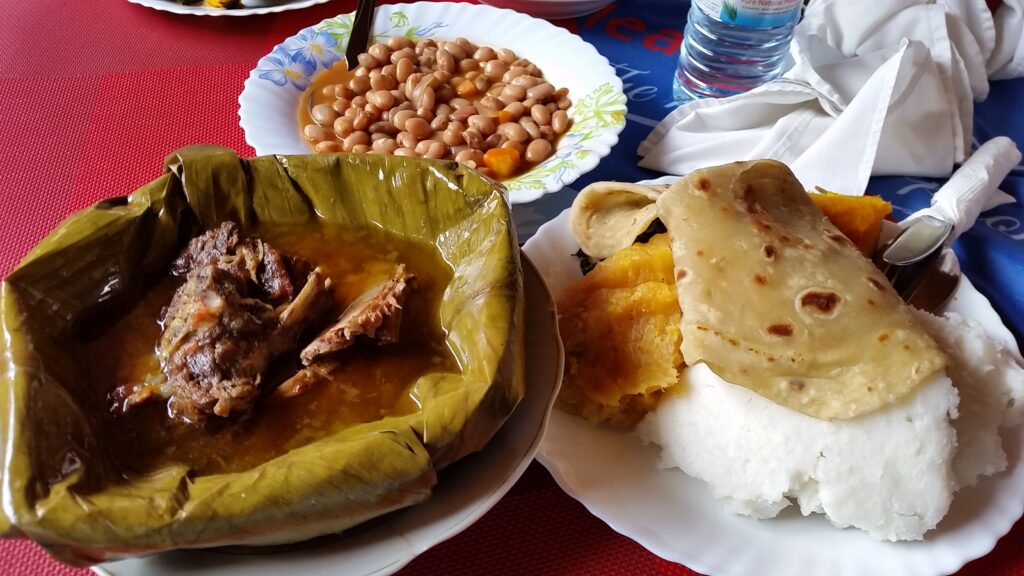
Fact 10: The name of the country is derived from the Kingdom of Buganda
The name “Uganda” is derived from the historical kingdom of Buganda. The kingdom of Buganda was a prominent and influential kingdom in East Africa, located in the region that is now Uganda. It was founded in the 14th century and was one of the largest and most powerful of the traditional kingdoms in the area. Buganda had a well-organized political system with a central monarchy, and its capital was Kampala.
The kingdom played a significant role in the region’s history, including in trade and political alliances. During the colonial period, Buganda was recognized by the British as an important local authority, which influenced the boundaries and administration of the territory.
When Uganda gained independence from Britain in 1962, the name “Uganda” was derived from “Buganda” to honor the historical significance of the kingdom.

Published September 08, 2024 • 7m to read

